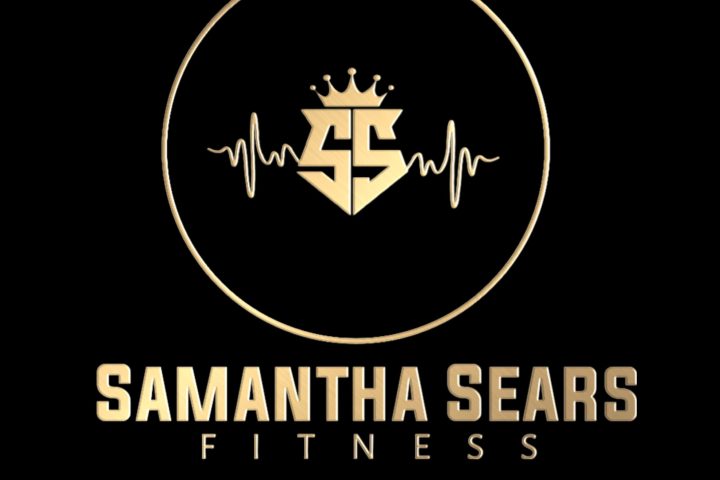
In today’s world, the supplement industry is booming. With an estimated market value of over $140 billion in 2023, it’s clear that many people are looking for ways to enhance their health, fitness, and overall well-being. However, with such a vast array of products available, it can be challenging to separate fact from fiction. This article aims to shed light on the truth about supplements, debunk common myths, and provide a comprehensive guide to the most popular supplements, their benefits, and who might need them.
The Basics: What Are Supplements?
Dietary supplements are products designed to add nutritional value to your diet. They can come in various forms, including pills, capsules, powders, and liquids. Common supplements include vitamins, minerals, amino acids, herbs, and enzymes. While some people take supplements to ensure they get enough essential nutrients, others use them to achieve specific health or fitness goals.
Myths and Misconceptions
Myth 1: Supplements Can Replace a Healthy Diet
One of the most common misconceptions about supplements is that they can replace a healthy diet. While supplements can help fill nutritional gaps, they cannot replicate the complex array of nutrients found in whole foods. A diet rich in fruits, vegetables, whole grains, and lean proteins is essential for overall health. Supplements should be seen as an addition to, not a substitute for, a balanced diet.
Myth 2: More Is Always Better
Another widespread myth is that taking higher doses of supplements will yield better results. In reality, more is not always better. High doses of certain vitamins and minerals can be harmful and may lead to toxicity. For example, excessive vitamin A can cause liver damage, while too much iron can lead to gastrointestinal issues and other health problems. It’s essential to follow recommended dosages and consult a healthcare professional before significantly increasing your intake.
Myth 3: All Supplements Are Safe
Not all supplements are created equal, and their safety can vary significantly. The supplement industry is not as tightly regulated as pharmaceuticals, leading to potential issues with product quality and consistency. Some supplements may contain contaminants or ingredients not listed on the label. Always choose reputable brands and look for products that have been third-party tested for quality and purity.
Myth 4: Supplements Are Necessary for Everyone
While supplements can be beneficial for some people, they are not necessary for everyone. Individual needs vary based on factors such as age, gender, diet, lifestyle, and health goals. For example, older adults may benefit from vitamin D and calcium supplements to support bone health, while pregnant women often need additional folic acid. However, a healthy individual with a well-balanced diet may not require any supplements at all.
Common Supplements and Their Benefits
Multivitamins
Multivitamins are among the most popular supplements. They contain a combination of vitamins and minerals designed to cover general nutritional needs. While they can be beneficial for people with dietary restrictions or specific deficiencies, their effectiveness for the general population is still debated. It’s important to note that multivitamins should not replace a varied diet but can help ensure you get essential nutrients.
Who Might Need Them:
People with dietary restrictions (e.g., vegans, vegetarians)
Individuals with certain health conditions or nutrient deficiencies
Older adults with decreased nutrient absorption
Vitamin D
Vitamin D is crucial for bone health, immune function, and overall well-being. It helps the body absorb calcium, which is necessary for strong bones. Many people, especially those living in areas with limited sunlight, may be deficient in vitamin D.
Who Might Need It:
People with limited sun exposure
Older adults
Individuals with darker skin (higher melanin levels reduce vitamin D synthesis)
Those with conditions affecting vitamin D absorption (e.g., celiac disease, Crohn’s disease)
Omega-3 Fatty Acids
Omega-3 fatty acids are essential fats found in fish oil and certain plant oils. They are known for their anti-inflammatory properties and benefits for heart health, brain function, and joint health. Omega-3 supplements can be particularly beneficial for those who do not consume enough fatty fish in their diet.
Who Might Need Them:
People with a low intake of fatty fish
Individuals with heart disease or at risk of heart disease
Those with inflammatory conditions (e.g., arthritis)
Protein Supplements
Protein supplements, such as whey, casein, and plant-based proteins, are commonly used by athletes and fitness enthusiasts to support muscle growth and recovery. They can also be helpful for individuals with increased protein needs or those who struggle to get enough protein through food alone.
Who Might Need Them:
Athletes and bodybuilders
Individuals recovering from surgery or illness
People with increased protein needs (e.g., pregnant women, older adults)
Probiotics
Probiotics are live bacteria and yeasts that are beneficial for gut health. They can help balance the gut microbiome, improve digestion, and support the immune system. Probiotic supplements come in various strains, each with different health benefits.
Who Might Need Them:
Individuals with digestive issues (e.g., irritable bowel syndrome, diarrhea)
Those taking antibiotics (to replenish gut bacteria)
People with weakened immune systems
Calcium
Calcium is essential for strong bones and teeth, muscle function, and nerve signaling. While it’s best obtained through food sources like dairy products, leafy greens, and fortified foods, some individuals may need supplements to meet their calcium needs.
Who Might Need It:
Postmenopausal women (increased risk of osteoporosis)
Older adults
People with lactose intolerance or dairy allergies
Iron
Iron is a critical component of hemoglobin, which transports oxygen in the blood. Iron deficiency can lead to anemia, characterized by fatigue, weakness, and impaired cognitive function. Iron supplements can help prevent and treat iron deficiency.
Who Might Need It:
Women of childbearing age (due to menstrual blood loss)
Pregnant women (increased iron needs)
Individuals with certain medical conditions (e.g., gastrointestinal disorders, chronic kidney disease)
B Vitamins
B vitamins, including B12, B6, and folic acid, play vital roles in energy production, brain function, and red blood cell formation. Deficiencies in these vitamins can lead to fatigue, cognitive issues, and anemia.
Who Might Need Them:
Vegetarians and vegans (B12 is primarily found in animal products)
Older adults (decreased absorption)
Individuals with certain medical conditions (e.g., pernicious anemia, celiac disease)
Creatine
Creatine is a popular supplement among athletes and bodybuilders. It helps increase muscle mass, strength, and exercise performance by providing additional energy for high-intensity activities. Creatine is naturally found in meat and fish but can be taken as a supplement for enhanced benefits.
Who Might Need It:
Athletes and bodybuilders
Individuals engaging in high-intensity, short-duration exercises
Older adults (potential benefits for muscle mass and strength)
Herbal Supplements
Herbal supplements, such as ginseng, echinacea, and turmeric, are derived from plants and used for various health purposes. They can provide natural remedies for issues like inflammation, immune support, and cognitive function.
Who Might Need Them:
Individuals seeking natural remedies for specific health concerns
People looking for complementary therapies
The Importance of Personalized Supplementation
It’s essential to recognize that not all supplements are suitable for everyone. Individual needs can vary widely based on factors such as age, gender, lifestyle, diet, and health conditions. For example:
Age: Older adults may require more vitamin D and calcium to support bone health, while younger individuals might focus on supplements that enhance energy and muscle growth.
Gender: Women of childbearing age may need iron supplements to compensate for menstrual blood loss, while men might focus on supplements that support muscle growth and heart health.
Diet: Vegetarians and vegans may need to supplement with vitamin B12, iron, and omega-3 fatty acids, which are less abundant in plant-based diets.
Health Goals: Athletes and fitness enthusiasts might prioritize protein and creatine supplements to enhance performance and recovery, while individuals with digestive issues may benefit from probiotics.
Consulting with Healthcare Professionals
Before starting any supplement regimen, it’s crucial to consult with a healthcare professional, such as a doctor, registered dietitian, or nutritionist. They can help assess your specific needs, identify potential deficiencies, and recommend appropriate supplements. This is especially important if you have existing health conditions, take medications, or are pregnant or breastfeeding.
Healthcare professionals can also help you navigate the complex world of supplements, ensuring you choose high-quality products from reputable brands. They can provide guidance on dosages, potential interactions with medications, and any risks associated with specific supplements.
Quality and Safety Considerations
When choosing supplements, it’s essential to prioritize quality and safety. Here are some tips to help you make informed choices:
Look for Third-Party Testing
Choose supplements that have been third-party tested for quality and purity. Independent organizations, such as NSF International, USP (United States Pharmacopeia), and ConsumerLab, provide certification for products that meet their rigorous standards. This can help ensure that the supplement contains the ingredients listed on the label and is free from contaminants.
Check the Label
Carefully read the supplement label to understand the ingredients, dosages, and any potential allergens. Look for products that provide clear and transparent information about their contents.
Be Wary of Bold Claims
Be cautious of supplements that make bold or exaggerated claims, such as “miracle cure” or “guaranteed results.” If something sounds too good to be true, it probably is. Stick to products with evidence-based benefits and avoid those with unrealistic promises.
Consider Potential Interactions
Supplements can interact with medications and other supplements, potentially leading to adverse effects. Always
